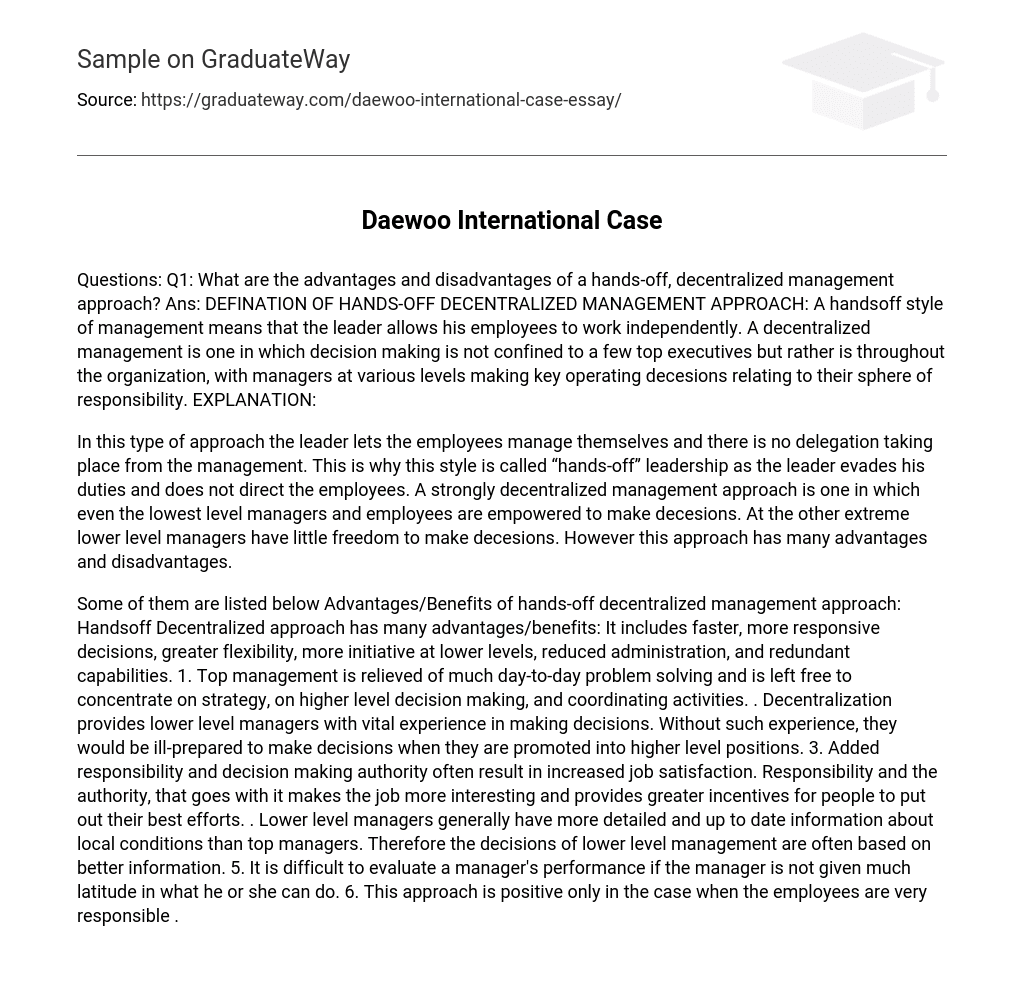Questions: Q1: What are the advantages and disadvantages of a hands-off, decentralized management approach? Ans: DEFINATION OF HANDS-OFF DECENTRALIZED MANAGEMENT APPROACH: A handsoff style of management means that the leader allows his employees to work independently. A decentralized management is one in which decision making is not confined to a few top executives but rather is throughout the organization, with managers at various levels making key operating decesions relating to their sphere of responsibility. EXPLANATION:
In this type of approach the leader lets the employees manage themselves and there is no delegation taking place from the management. This is why this style is called “hands-off” leadership as the leader evades his duties and does not direct the employees. A strongly decentralized management approach is one in which even the lowest level managers and employees are empowered to make decesions. At the other extreme lower level managers have little freedom to make decesions. However this approach has many advantages and disadvantages.
Some of them are listed below Advantages/Benefits of hands-off decentralized management approach: Handsoff Decentralized approach has many advantages/benefits: It includes faster, more responsive decisions, greater flexibility, more initiative at lower levels, reduced administration, and redundant capabilities. 1. Top management is relieved of much day-to-day problem solving and is left free to concentrate on strategy, on higher level decision making, and coordinating activities. . Decentralization provides lower level managers with vital experience in making decisions. Without such experience, they would be ill-prepared to make decisions when they are promoted into higher level positions. 3. Added responsibility and decision making authority often result in increased job satisfaction. Responsibility and the authority, that goes with it makes the job more interesting and provides greater incentives for people to put out their best efforts. . Lower level managers generally have more detailed and up to date information about local conditions than top managers. Therefore the decisions of lower level management are often based on better information. 5. It is difficult to evaluate a manager’s performance if the manager is not given much latitude in what he or she can do. 6. This approach is positive only in the case when the employees are very responsible .





